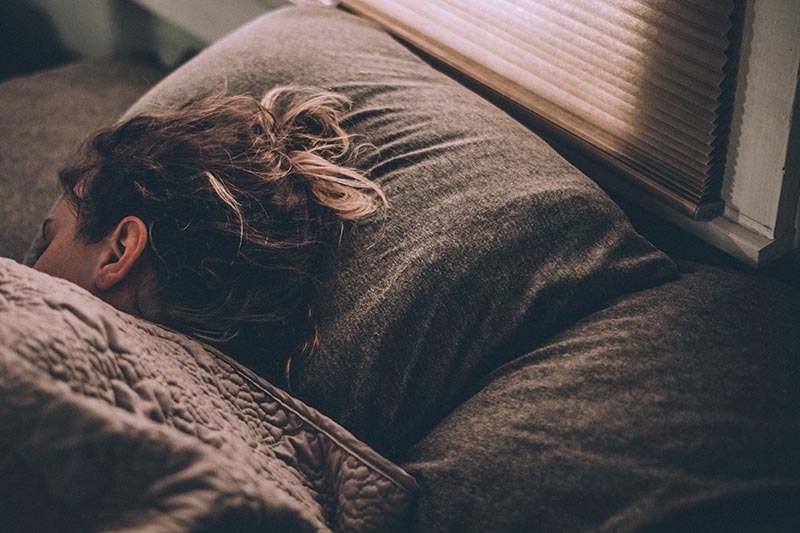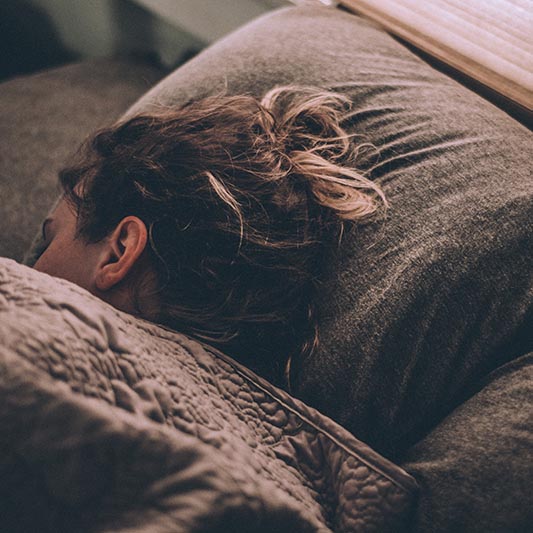
Have you ever found yourself tossing and turning at night, unable to fall asleep, even though you know you are exhausted?
You are not alone. It is estimated that up to 20 percent of healthy adults will experience some type of difficulty with sleep in the course of a year. This figure increases when a person is experiencing or being treated for anxiety and depression.
Difficulty initiating or maintaining sleep can be a significant source of worry and stress, which can then worsen the situation. It seems like a never-ending cycle! Luckily, there are many simple options available to help support healthy sleep patterns.
While it is always best to start by examining a bedtime routine and make adjustments to promote healthy sleep habits, there are a variety of over-the-counter sleep aids that may be considered to promote sleep onset. Many people prefer to seek a natural approach to correct sleep abnormalities. Melatonin is one option for those seeking a sleep aid, but do not wish to pursue a medication option.
What is melatonin?
Melatonin is a sleep-inducing hormone that is released in response to lack of light exposure which is a natural part of your body’s sleep cycle. While it is released or suppressed in reponse to natural light, it can also fluctuate based on exposure to artificial light. In fact, researchers have found a correlation between exposure to blue light and suppressed levels of melatonin.
This is why sleep experts recommend electronics be put away at least 30 minutes prior to anticipated sleep time (yes, this includes Sanvello!). Avoiding the exposures to light from electronic screens before bed can help you avoid melatonin suppression. To stimulate melatonin release, try taking a hot bath or shower about three hours before bedtime. A spike in internal body temperature followed by a sudden drop in body temperative (such as after taking a hot bath or shower) will result in melatonin release.
Are melatonin pills natural?
Melatonin is a naturally-occurring compound in both plants and animals. Because melatonin is found in many foods, melatonin can be a dietary supplement—and is currently marketed as such. Melatonin pills are typically made from food sources. Dietary supplements differ from over-the-counter medications or prescription medications because they are not regulated by the FDA, and have not been studied for safety or efficacy in the promotion of healthy sleep.
When seeking out an over-the-counter supplement, it’s important to inspect the label for approval from the U.S. Pharmacopeia, commonly known as USP. USP is an organization that inspects quality and purity of dietary supplements since the FDA does not regulate them. The USP Verified Mark will be marked on the container and indicates the supplement has met their standards for ingredients, contaminants, breakdown and release within the body, and other guidelines that indicate quality.
Are melatonin pills safe?
Melatonin has been studied among many different populations with different sleep complaints. There have been no serious adverse effects found with use of melatonin. Some of the more common side effects reported by study groups have been headache, tiredness, and dizziness.
How much melatonin should I take?
A typical dose of melatonin is 0.5-2 mg three to four hours prior to anticipated sleep time, with minimal light exposure for those who have trouble falling asleep. It is always best to “start low, go slow,” which means start at the lowest dose and increase slowly to see how you respond. Remember, melatonin is a hormone and not a sleep medication. A low dose several hours prior to bedtime is optimal.
Are there ways to increase my own melatonin without taking a supplement?
As mentioned before, melatonin is responsive to exposure to light, especially blue light like that omitted from our phones, TV screens, and other devices. Ensure you have a dark room available to sleep in, and reduce time spent watching TV or using electronics prior to sleep to help promote melatonin release and circulation. There are also foods rich in melatonin such as nuts, seeds, eggs, fish, and mushrooms.
How can I start with a melatonin supplement?
Melatonin is available over the counter; however, it is always recommended to speak with your doctor if you are having difficulty with sleep. Any sleep disturbance that is persistent (more than one week) could indicate another underlying problem, and should be evaluated by a physician. Melatonin is best used for the occasional incidence of difficulty falling asleep, and should be used in combination with good sleep practices.
References:
Costello R, Lentino C, Boyd C et. Al. The effectiveness of melatonin for promoting healthy sleep: a rapid evidence assessment of the literature. Nutr J. 2014; 13: 106. Published online 2014 Nov 7. doi: 10.1186/1475-2891-13-106
The American Academy of Sleep Medicine. Insomnia Fact Sheet. https://aasm.org/resources/factsheets/insomnia.pdf. Accessed 12/15/19.
Meng X, Li Y, Zhou Y, et. Al. Dietary Sources and Bioactivities of Melatonin. Nutrients. 2017 Apr; 9(4): 367.
Published online 2017 Apr 7. doi: 10.3390/nu9040367

By Emily Black, PharmD
Clinical Pharmacist and Sanvello Clinical Advisory Board Member
Dr. Black is a clinical pharmacist specializing in medication management of chronic disease states. She is dual board certified in pharmacotherapy and ambulatory care clinical pharmacy. She was previously a retail pharmacist, having worked at Walgreens for five years. She completed residency training at Gulf Coast Veterans Health Care System with focus on primary care medication management. She worked as a clinical pharmacist at the Martinsburg VA Medical Center as part of the home-based primary care program, and is currently a clinical pharmacist at a large integrated health system providing care in Pennsylvania. Her current practice is integrated into a primary care office managing medications for patients with diabetes, dyslipidemia, hypertension, asthma, COPD, chronic pain, medically complex adolescents, and patients on blood thinners.
